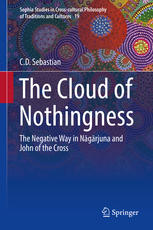

Most ebook files are in PDF format, so you can easily read them using various software such as Foxit Reader or directly on the Google Chrome browser.
Some ebook files are released by publishers in other formats such as .awz, .mobi, .epub, .fb2, etc. You may need to install specific software to read these formats on mobile/PC, such as Calibre.
Please read the tutorial at this link: https://ebookbell.com/faq
We offer FREE conversion to the popular formats you request; however, this may take some time. Therefore, right after payment, please email us, and we will try to provide the service as quickly as possible.
For some exceptional file formats or broken links (if any), please refrain from opening any disputes. Instead, email us first, and we will try to assist within a maximum of 6 hours.
EbookBell Team

0.0
0 reviewsThis book explores ‘nothingness’, the negative way found in Buddhist and Christian traditions, with a focused and comparative approach. It examines the works of Nagarjuna (c. 150 CE), a Buddhist monk, philosopher and one of the greatest thinkers of classical India, and those of John of the Cross (1542-1591), a Carmelite monk, outstanding Spanish poet, and one of the greatest mystical theologians. The conception of nothingness in both the thinkers points to a paradox of linguistic transcendence and provides a novel insight into via negativa. This is the first full-length work comparing nothingness (emptiness) in Nagarjuna (Mahayana Buddhism) and John of the Cross (Christianity) in any language. It augments the comparative approach found in Buddhist-Christian comparative philosophy and theology. This book is of especial interest to academics of Buddhist and Christian studies searching for avenues for intellectual dialogue.